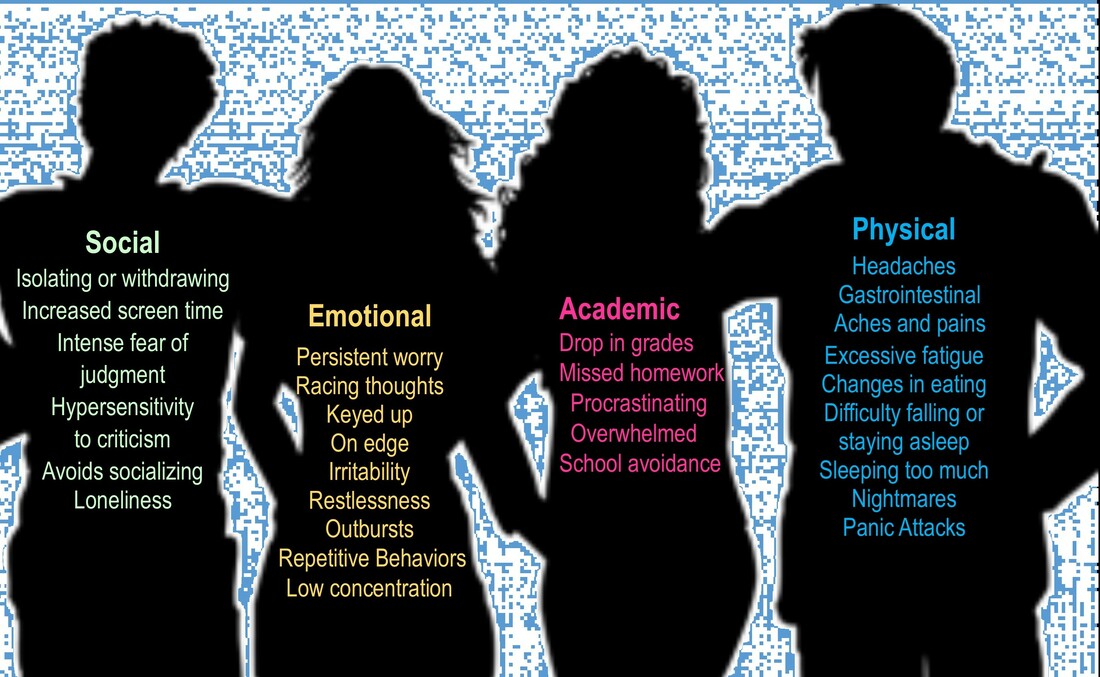Anxiety is a common challenge faced by many teenagers, particularly girls. Its impact can be significant, affecting mental health, academic performance, and daily functioning. Understanding the causes, symptoms, and coping mechanisms for anxiety is crucial to supporting teenage girls through this experience.

Image: www.pinterest.com
Recognizing Teenage Anxiety
Anxiety in teenage girls can manifest in various forms, ranging from mild apprehension to severe panic attacks. Common symptoms include excessive worry, difficulty concentrating, irritability, sleep disturbances, and avoidance behaviors. It’s important to note that anxiety can often be accompanied by physical symptoms such as headaches, stomachaches, and rapid heart rate.
Addressing the Roots of Anxiety
The causes of anxiety in teenage girls are multifaceted, influenced by both biological and environmental factors. Genetic predisposition, temperament, and hormonal changes during adolescence can play a role. Additionally, societal pressures, academic demands, and family dynamics can contribute to anxiety levels. Identifying potential triggers is essential to developing effective coping strategies.
Evidence-Based Coping Techniques
Managing anxiety requires a combination of professional support and evidence-based self-help strategies. Cognitive Behavioral Therapy (CBT) has been proven highly effective in reducing anxiety by challenging negative thought patterns and promoting adaptive coping mechanisms. Mindfulness meditation and relaxation techniques, such as deep breathing and yoga, can also help calm racing thoughts and reduce stress.

Image: www.wavelengthspsychology.com
The Role of Support Systems
Strong support networks are fundamental in supporting teenage girls with anxiety. Encouraging open and supportive conversations with parents, teachers, and trusted adults can provide a safe space for expressing concerns without judgment. Friends and peers can also offer valuable support and understanding, fostering a sense of belonging and reducing feelings of isolation.
Professional Help: When to Seek It
While self-care strategies can be beneficial, seeking professional help is recommended if anxiety significantly affects a teenager’s daily life. A qualified mental health professional can provide tailored guidance, support, and medication if necessary, helping girls develop long-term coping skills and improve their quality of life.
Tips for Parents and Educators
- Foster a supportive environment by listening attentively, validating emotions, and encouraging open communication.
- Avoid dismissing anxiety as “just a phase” or “all in their head.”
- Collaborate with school personnel to accommodate any specific needs or modifications that may be required.
- Educate yourself about anxiety and its symptoms to better understand your daughter’s experience.
Frequently Asked Questions (FAQs)
Q: Is anxiety a common experience among teenage girls?
A: Yes, anxiety is highly prevalent in teenage girls, affecting up to 40%.
Q: What are the most effective coping strategies for teenage girls with anxiety?
A: Evidence-based strategies include Cognitive Behavioral Therapy (CBT), mindfulness, relaxation techniques, and seeking support from trusted individuals.
Q: When should parents and educators consider seeking professional help for a teenage girl with anxiety?
A: If anxiety significantly interferes with a girl’s daily life or academic performance, affects relationships, or causes distress, professional help is recommended.
How To Deal With A Teenage Girl With Anxiety
Conclusion
Dealing with anxiety as a teenage girl can be a challenging but manageable experience. By recognizing the symptoms, understanding the causes, and implementing effective coping strategies, teenage girls can overcome anxiety and enhance their well-being. Seeking support from loved ones and professionals is essential in ensuring the development of resilient and well-adjusted young women.
Are you interested in the topic of teenage anxiety? Share your thoughts and experiences in the comments section below.